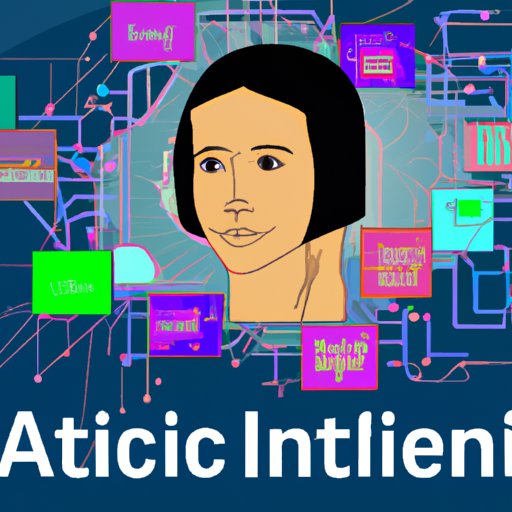
An Overview of Artificial Intelligence
Artificial intelligence (AI) is a rapidly evolving field of technology that has the potential to revolutionize many aspects of our lives. AI involves the use of computers and algorithms to simulate intelligent behavior, enabling machines to learn from their environment and make decisions on their own. AI has become increasingly popular in recent years, with more and more businesses and industries investing in the development of AI-based products and services.
The definition of AI can vary depending on who you ask, but generally AI is defined as “the ability of a machine or computer program to think and learn”. AI systems are designed to be able to make decisions independently, without requiring any human input. AI is also used to refer to the broader field of computer science which includes the study of algorithms and data structures.
AI can be divided into two distinct categories: weak AI and strong AI. Weak AI, also known as narrow AI, is focused on performing specific tasks such as playing chess or recognizing images. Strong AI, also known as general AI, is focused on replicating the full range of human cognitive abilities, including problem solving, planning, and natural language processing.
The history of AI dates back to ancient Greece, where philosophers such as Aristotle and Plato discussed the concept of automata. The modern era of AI began in 1956 with the Dartmouth Conference, where a group of computer scientists met to discuss the potential of creating intelligent machines. Since then, AI has made great progress, with advances in machine learning, natural language processing, and robotics.

Benefits and Challenges of Artificial Intelligence
AI offers numerous potential benefits for businesses and consumers alike. AI can automate tedious and time-consuming tasks, freeing up employees to focus on more important work. AI can also provide valuable insights by analyzing large amounts of data quickly and accurately. In addition, AI can improve customer service by providing personalized experiences based on customer preferences.
However, AI also presents some challenges. One of the biggest concerns is the potential for AI systems to be biased or inaccurate due to the data they are trained on. AI systems can also create privacy issues if personal data is collected and used without the user’s knowledge or consent. Finally, AI can lead to job displacement as more tasks are automated.

How AI is Changing Our World
AI is having a profound effect on many different industries and sectors. AI is being used in business to automate processes, analyze customer data, and create personalized experiences. In healthcare, AI is being used to diagnose diseases, develop new treatments, and reduce medical errors. AI is also being used in education to create interactive learning experiences and offer personalized instruction. Finally, AI is being used in transportation to improve safety, reduce traffic congestion, and provide autonomous driving capabilities.
Exploring the Possibilities of AI
The possibilities of AI are virtually limitless. Machine learning is a type of AI which enables machines to learn from experience and make decisions without explicit programming. Natural language processing allows machines to understand and generate human language, enabling them to interact with people more effectively. Robotics is another area of AI which involves the design and development of robots that can perform tasks autonomously.
The Future of Artificial Intelligence
As AI continues to evolve, the ethical implications of this technology must be considered. AI systems can be used for good or bad purposes, so it is important to ensure that they are developed responsibly. AI also has the potential to drastically change society, with experts predicting that AI could have a major impact on jobs, inequality, and even our sense of identity.
The potential applications of AI are vast, ranging from self-driving cars to AI-powered medical diagnostics. As AI continues to advance, we can expect to see more AI-based products and services entering the market, transforming the way we live, work, and play.
The future of AI holds great promise, but it is important to remember that with great power comes great responsibility. It is up to us to ensure that AI is used ethically and responsibly, and to explore the possibilities of this technology in order to make the world a better place.
(Note: Is this article not meeting your expectations? Do you have knowledge or insights to share? Unlock new opportunities and expand your reach by joining our authors team. Click Registration to join us and share your expertise with our readers.)
